Are you feeling overwhelmed by the visa application process? You're not aloneâmany applicants face hurdles that can be disheartening. Fortunately, knowing how to craft a compelling appeal letter can make all the difference in your journey to securing your visa. Join me as we explore valuable tips and a helpful template to guide you through this crucial step in your application.
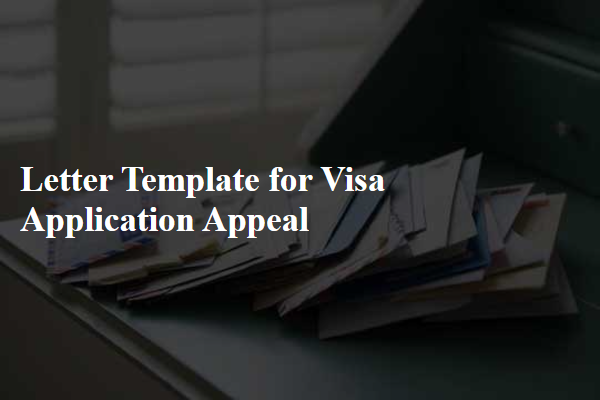
Personal Information
When preparing a visa application appeal, it is crucial to include personal information that accurately represents your identity and circumstances. Essential details include full name, which should match the passport, date of birth (indicating age and personal background context), nationality (which can reflect ties to specific countries), passport number (for identification purposes), and contact information such as email and phone number (enabling communication with visa authorities). Additionally, address (including city, state, and country) must be clearly stated to provide a complete picture of residency status. Employment status and position can also add context regarding financial stability, while details about family members, including dependents, can be relevant, especially in humanitarian cases or those seeking to join family abroad. Each piece of information plays a vital role in presenting a well-rounded appeal.
Reason for Visa Denial
Visa denial reasons often stem from factors such as insufficient financial resources, lack of ties to the home country, or incomplete documentation. In many cases, applicants receive a refusal based on the regulations stated by the immigration authorities, such as the U.S. Citizenship and Immigration Services or the United Kingdom Home Office. Specific details often highlight shortcomings, for instance, the failure to provide recent bank statements showing adequate funds to support a stay. Additionally, inadequate demonstration of family or professional commitments might raise concerns about the likelihood of returning to the home country, such as employment contracts or proof of property ownership. Addressing these points in an appeal can significantly enhance the chances of a successful outcome.
Grounds for Appeal
Visa application appeals often hinge on critical factors affecting eligibility. Common grounds for appeal include insufficient financial evidence, such as bank statements showing inadequate funds to support a stay in the target country. Denials may arise from a lack of supporting documentation, revealing discrepancies in submitted application forms. Misinterpretation of immigration laws or requirements can lead to rejection; therefore, highlighting applicable legal precedents is essential. Additionally, failure to provide compelling reasons for travel, such as an official invitation letter from a reputable institution, may further weaken an application. Addressing these elements in a well-structured appeal is crucial for presenting a convincing case for reconsideration.
Supporting Documents
Supporting documents play a crucial role in a visa application appeal, providing essential evidence to strengthen the case. A well-organized collection might include the applicant's passport (valid and up-to-date), photographs (meeting the specific embassy's size requirements), and previous visa refusal letters (highlighting the reasons for denial). Financial statements from local banks (showing adequate funds for living expenses during the stay) should be included, as well as proof of employment (such as a letter from the employer on company letterhead). Additionally, medical insurance documents (covering the entire stay) and travel itineraries (outlining planned activities and accommodations) enhance the application. Any supporting letters from family members or friends residing in the destination country, demonstrating ties and support, also substantiate the appeal.
Contact Details and Signature
In the context of a visa application appeal, it is crucial to provide comprehensive contact details and a clear signature to ensure proper communication and validation. Include your full name, which appears on your passport as well as any identification numbers relevant to your visa application, such as visa application number. Provide a current address that can receive correspondence, preferably a residential address rather than a temporary one. Additionally, include a phone number, preferably a mobile number for direct communication, and an email address to facilitate rapid responses. Conclude with a handwritten signature, which adds authenticity, confirming that all provided information is accurate and true to the best of your knowledge. A date, preferably the day of submission, should follow the signature to document when the appeal was signed.
Letter Template For Visa Application Appeal Samples
Letter template of visa application appeal for family reunion visa refusal
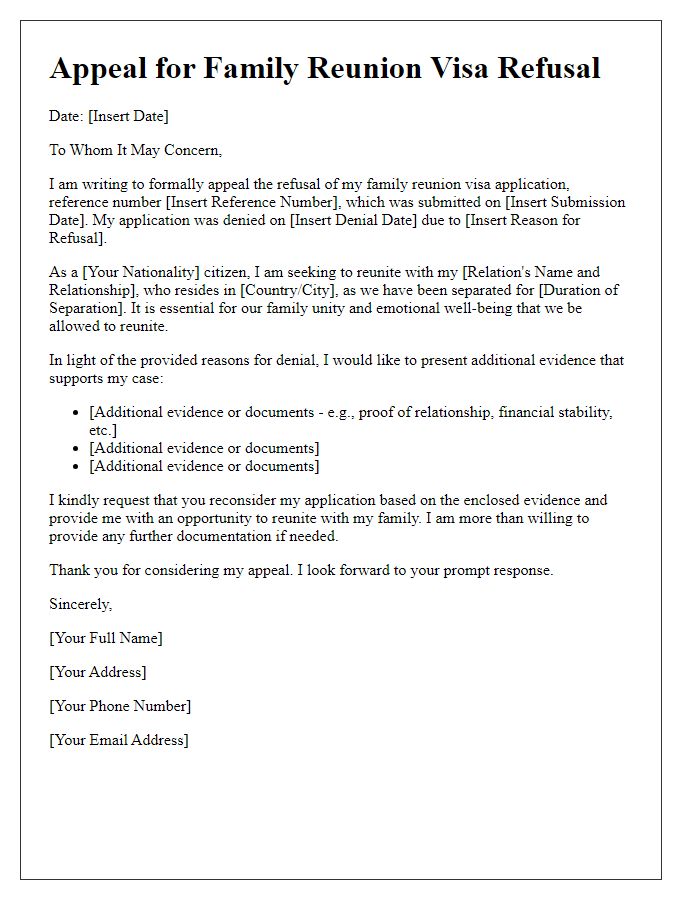
Letter template of visa application appeal for permanent residency refusal
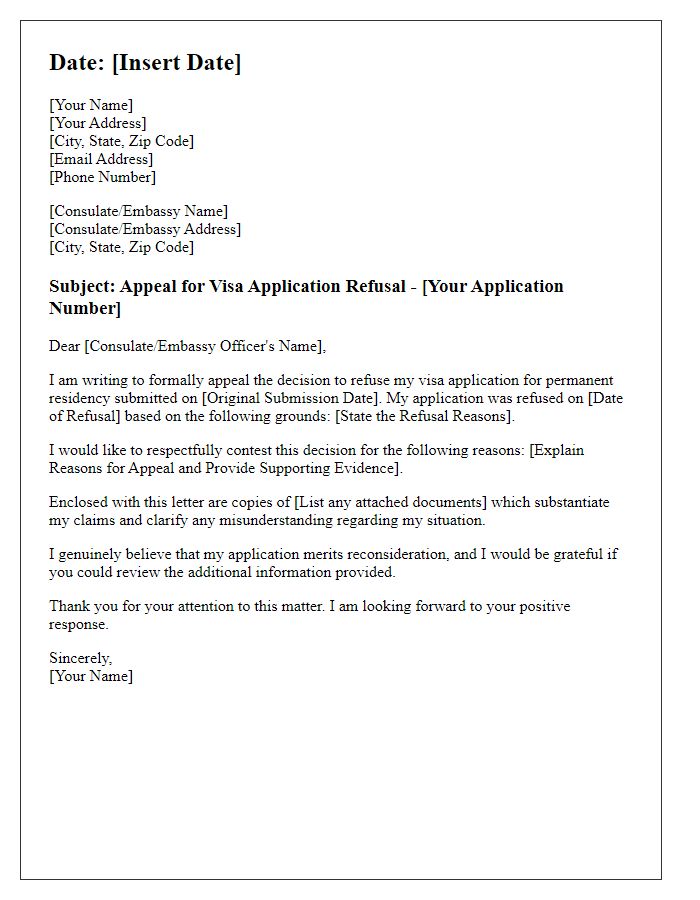
Letter template of visa application appeal for asylum seeker application
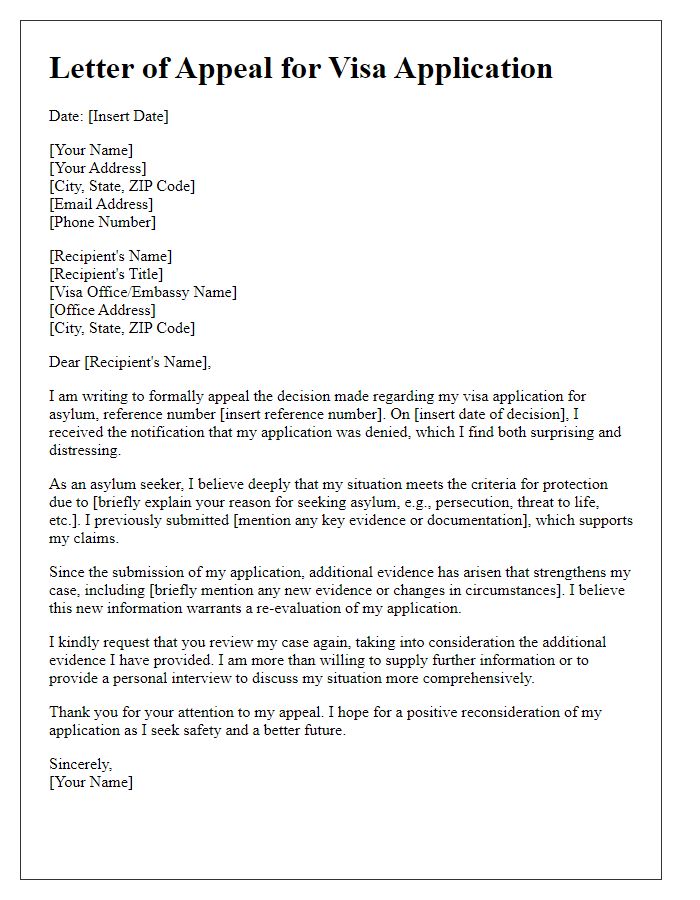
Letter template of visa application appeal for extraordinary ability visa rejection
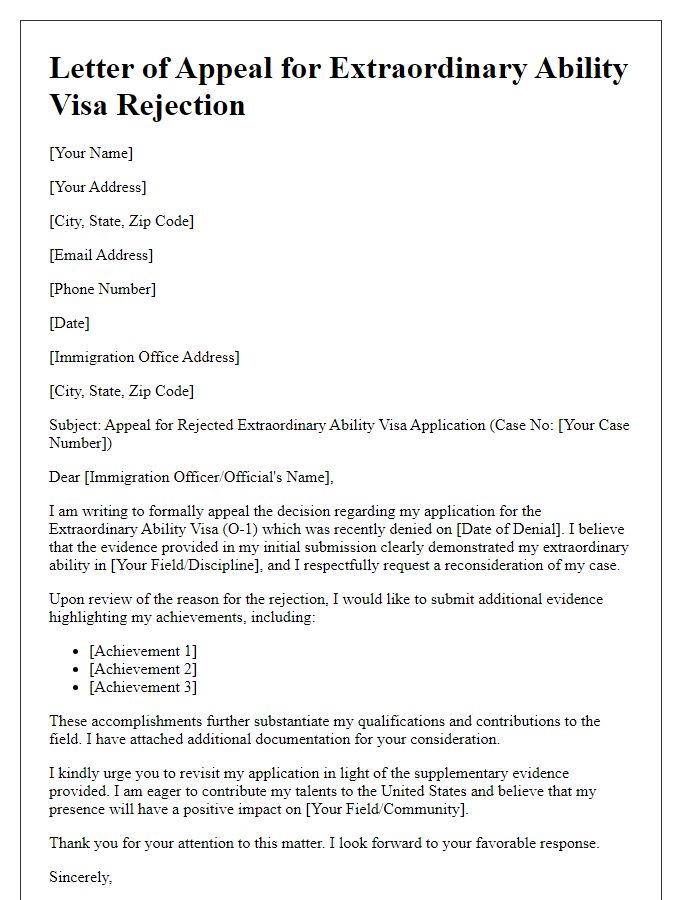

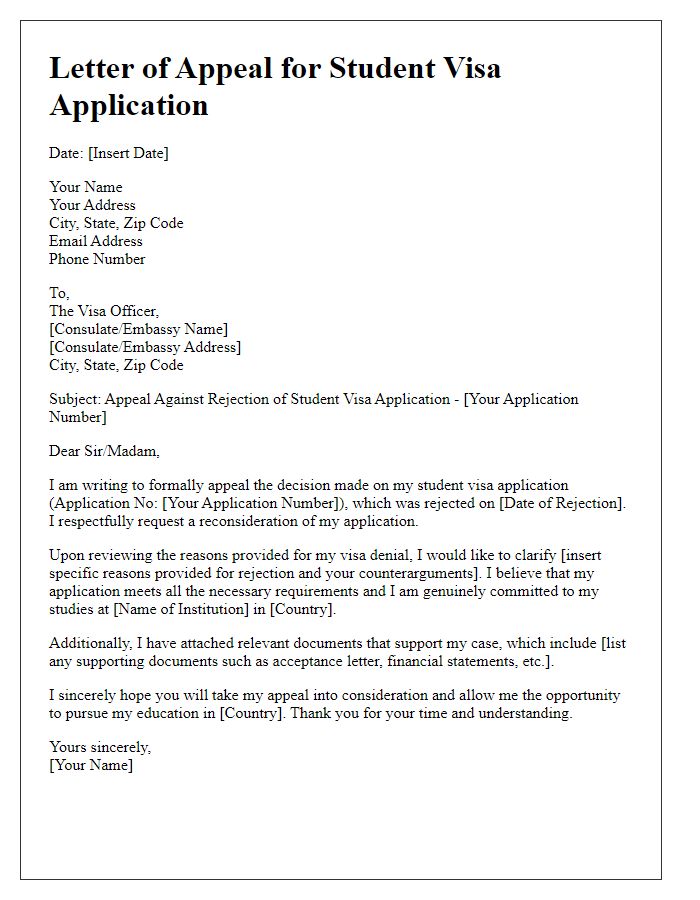
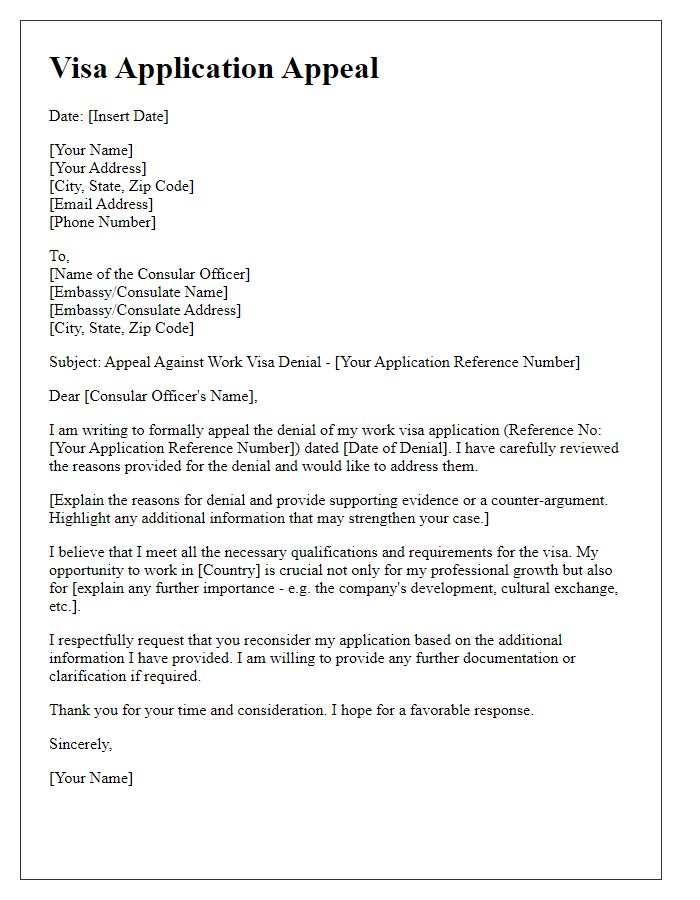
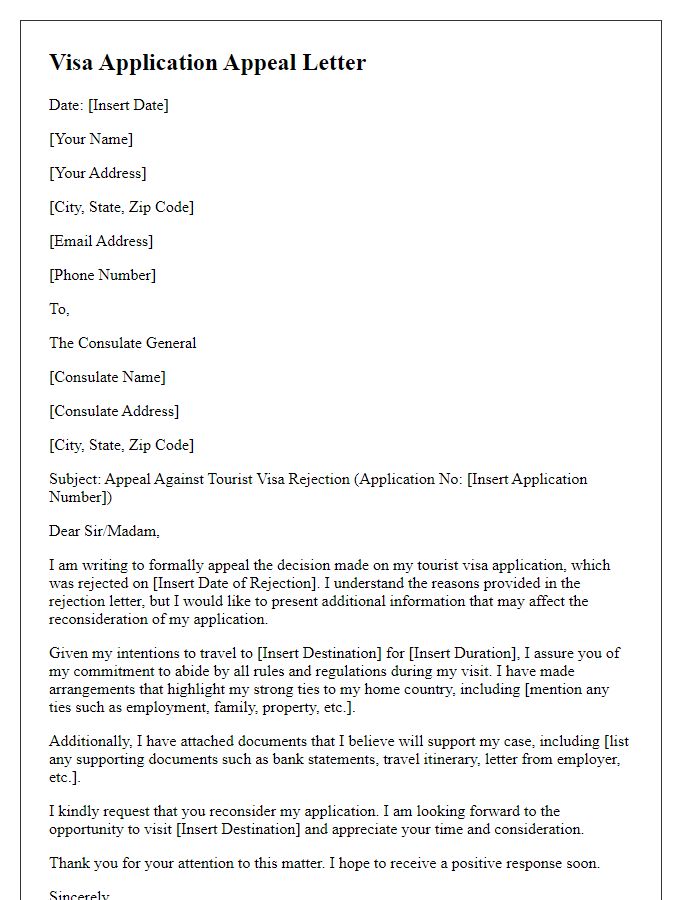
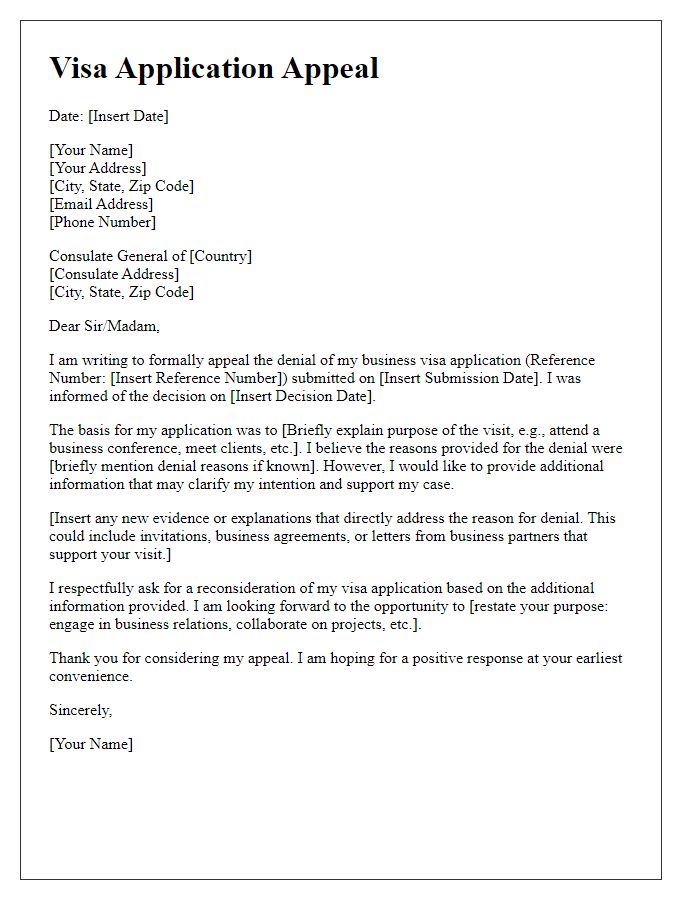
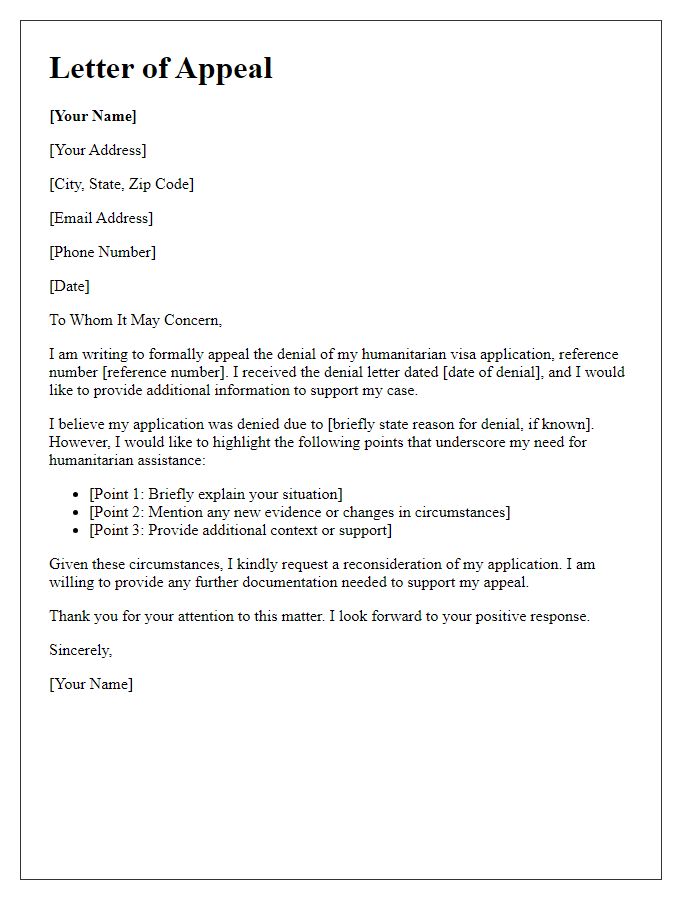
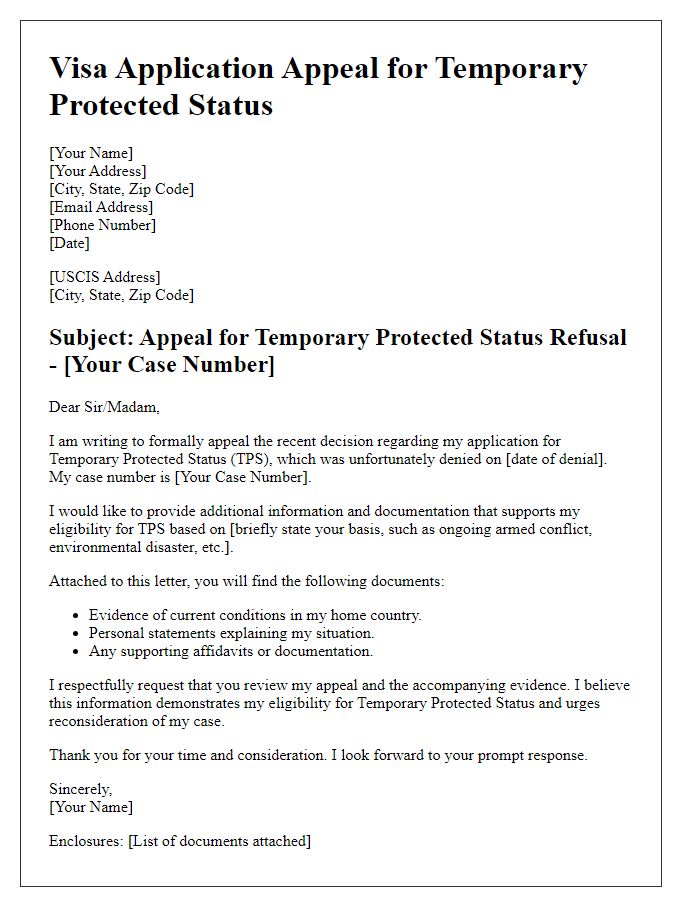


Comments